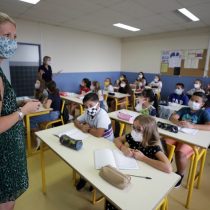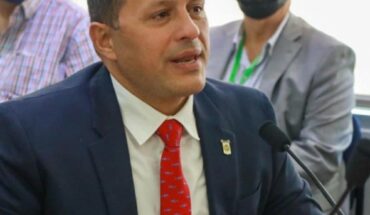
France banned the use of inclusive language in schools by considering that it “constitutes an obstacle to reading and understanding of writing,” officially ending a debate that has for years divided linguists and the educational community.
For its opponents it is an “aberration” that endangers languages while for its supporters it is part of the construction of a fairer world that has been ruled for centuries by binary order.
A deadly danger to the language of Molyre or a means of combating gender inequality?
The circular by the Minister of Education, Jean-Michel Blanquer, stressed this week that the adoption of such language changes respect for the rules of concordance “usually expected under teaching programmes”.
And he also argued that “it constitutes an obstacle to the understanding of writing”, in addition to affecting reading aloud and pronunciation, since an oral transcription of such spellings was not possible.
Blanquer emphasized in this text, published in the Official Gazette, that they are particularly harmed, contrary to what the inclusive adjective might suggest, children with certain disabilities or with learning disabilities.
For example, the spellings “les député-e’s” which respond to a combination of the plural male (deputés) with the female (deputées) of the word mpps, in rejection of the grammatical rule according to which the male gender is imposed in the plural, must disappear from the classroom.
“Our language is a precious treasure that we have the vocation to share with all our students, in their beauty and fluidity, without quarrels and without instrumentalizations,” adds the circular addressed to the rectors of the academy and to the staff of the Ministry of National Education.
Disparate postures
The ministry, however, supports the feminization of some words, especially professions, as long as grammar rules are respected and calls on teachers to “respect equality between girls and boys” through “the fight against stereotypical representations”.
Similarly, the minister is not the first to declare war on inclusive language. In 2017 the prestigious French Academy of Language called it “aberration”: “The multiplication of spelling and syntactic marks that leads to a ununited language, dispars in its expression, creating a confusion that rubs on illegiability”.
For Mathieu Avanzi, professor of linguistics at the Sorbonne, this topic raises passions because “it is the touch of a language and an established system” for centuries. “Love of language is a very French thing, as soon as you touch your tongue, shields are raised everywhere,” he says.
Moreover, he stresses, many are annoyed because they are proposals that emanate in a certain form of activism. “When language developments are done naturally, people don’t see them, when they respond to a militant line, they will always cause problems between some sectors,” he sums up for the AFP.
The Executive, through the Secretary of State for Priority Education, Nathalie Elimas, launched a salvo of criticism against what he considers not “a minor issue” but a “danger” to the French school and language, and even to the Republic.
“Language evolves because society evolves,” socialist Laurence Rossignol replied, noting that “generic masculine excludes women.”
Inclusive language, also known as non-sexist or inclusive, has been the subject of a hot debate among specialists for years.





